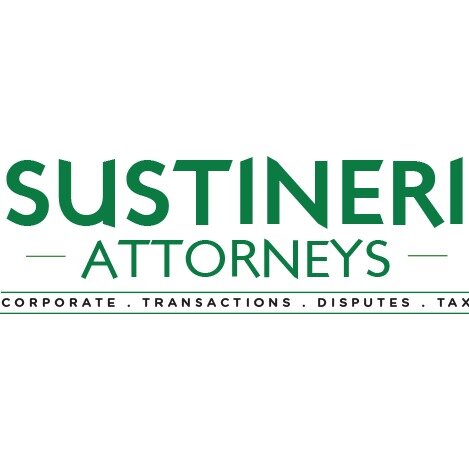Best Environmental Law & Compliance Lawyers in Ghana
Share your needs with us, get contacted by law firms.
Free. Takes 2 min.
Or refine your search by selecting a city:
List of the best lawyers in Ghana
About Environment Law in Ghana
Environmental law in Ghana is an evolving field aimed at managing and protecting the country's natural resources, which include forestry, wildlife, land, and water bodies. Ghana's environment is crucial for its agriculture-based economy and is home to diverse ecosystems, fostering unique biodiversity. The country faces significant environmental challenges such as deforestation, illegal mining activities (galamsey), pollution, and climate change impacts. In response, Ghana has established several regulatory frameworks and initiatives to promote sustainable development and ensure compliance with international environmental standards.
Why You May Need a Lawyer
There are several situations where individuals or businesses in Ghana may require legal assistance in environmental matters:
- Property Development: If you are considering developing land, you may need advice on environmental impact assessments and compliance with zoning laws.
- Mining and Natural Resource Extraction: Legal guidance can be critical in navigating permits, regulations, and resolving disputes concerning environmental degradation.
- Environmental Pollution: Legal help may be needed for filing claims or defending against allegations related to pollution or hazardous waste handling.
- Business Compliance: Companies may need legal advice to align with environmental regulations to avoid penalties or sanctions.
- Community Rights: Communities may seek legal assistance to protect their environmental rights or challenge projects that could harm the local ecosystem.
Local Laws Overview
Several key pieces of legislation underpin environmental law in Ghana:
- The Environmental Protection Agency Act, 1994 (Act 490): Establishes the Environmental Protection Agency, which is responsible for the enforcement of environmental laws and regulations.
- The Minerals and Mining Act, 2006 (Act 703): Regulates mining operations and aims to ensure the environmentally sustainable extraction of mineral resources.
- The Forestry Commission Act, 1999 (Act 571): Oversees forest management and conservation efforts, promoting sustainable forestry practices.
- The Water Resources Commission Act, 1996 (Act 522): Governs the use and protection of water resources in the country.
- The Wildlife Conservation Regulations, 1971 (L.I. 685): Provides guidelines for wildlife protection and habitat conservation.
Frequently Asked Questions
1. What is an Environmental Impact Assessment (EIA)?
An EIA is a process that evaluates the potential environmental effects of a proposed project before decisions are made. It helps ensure that potential negative impacts are considered and mitigated.
2. Who needs to conduct an EIA in Ghana?
Any individual or company planning to undertake a project that may have a significant impact on the environment is required to conduct an EIA as part of obtaining the necessary approvals from the Environmental Protection Agency.
3. Are there criminal penalties for violating environmental laws in Ghana?
Yes, individuals and companies can face fines, imprisonment, or both if they violate environmental laws, depending on the severity and nature of the offense.
4. How can a community oppose a project that may harm their environment?
Affected communities can raise objections through public hearings during the EIA process, lobby government officials, or seek legal representation to challenge the project in court.
5. What are the responsibilities of businesses regarding waste management?
Businesses are responsible for ensuring that their waste is disposed of in an environmentally friendly manner. This includes complying with waste management regulations and obtaining the necessary permits.
6. How is deforestation being addressed in Ghana?
Ghana is implementing reforestation programs, enforcing logging regulations, and encouraging the use of alternative materials to reduce the reliance on timber from natural forests.
7. Can individuals get involved in environmental conservation efforts?
Yes, individuals can participate in conservation programs, volunteer with environmental organizations, and engage in advocacy to raise awareness about environmental issues.
8. What steps should be taken if a company is polluting the environment?
Report the issue to the Environmental Protection Agency, gather evidence of the pollution, and consider seeking legal advice for further action such as filing a complaint or lawsuit.
9. What is the role of the Environmental Protection Agency?
The EPA is responsible for the formulation and enforcement of environmental policies, monitoring pollution levels, and ensuring compliance with environmental regulations in Ghana.
10. How does Ghana address climate change?
Ghana is undertaking various initiatives, such as promoting clean energy, enhancing reforestation efforts, and developing national climate adaptation and mitigation strategies.
Additional Resources
Several resources and organizations provide valuable information and support for environmental issues in Ghana:
- Environmental Protection Agency (EPA): The primary governmental body for environmental regulation and guidance.
- Ghana Forestry Commission: Focuses on forest and wildlife conservation policies.
- Water Resources Commission: Manages water resource conservation and use.
- Ministry of Environment, Science, Technology and Innovation (MESTI): Oversees environmental policy development and scientific research.
- Non-Governmental Organizations (NGOs): Such as Friends of the Earth Ghana and Conservation Alliance, which are actively involved in conservation projects and advocacy.
Next Steps
If you require legal assistance for an environmental issue in Ghana, consider the following steps:
- Identify the Issue: Clearly define your legal concern or the specific help you need regarding environmental law.
- Research Legal Professionals: Look for lawyers or law firms that specialize in environmental law in Ghana. Check their qualifications, track record, and client reviews.
- Consultations: Arrange consultations with potential legal advisors to discuss your case and understand their approach and fees.
- Documentation: Gather all relevant documents, evidence, and details pertinent to your case to provide to your lawyer.
- Engage Legal Services: Once satisfied with a lawyer’s expertise, engage their services formally to begin addressing your environmental legal needs.
Lawzana helps you find the best lawyers and law firms in Ghana through a curated and pre-screened list of qualified legal professionals. Our platform offers rankings and detailed profiles of attorneys and law firms, allowing you to compare based on practice areas, including Environmental Law & Compliance, experience, and client feedback.
Each profile includes a description of the firm's areas of practice, client reviews, team members and partners, year of establishment, spoken languages, office locations, contact information, social media presence, and any published articles or resources. Most firms on our platform speak English and are experienced in both local and international legal matters.
Get a quote from top-rated law firms in Ghana — quickly, securely, and without unnecessary hassle.
Disclaimer:
The information provided on this page is for general informational purposes only and does not constitute legal advice. While we strive to ensure the accuracy and relevance of the content, legal information may change over time, and interpretations of the law can vary. You should always consult with a qualified legal professional for advice specific to your situation.
We disclaim all liability for actions taken or not taken based on the content of this page. If you believe any information is incorrect or outdated, please contact us, and we will review and update it where appropriate.
Browse environmental law & compliance law firms by city in Ghana
Refine your search by selecting a city.

















